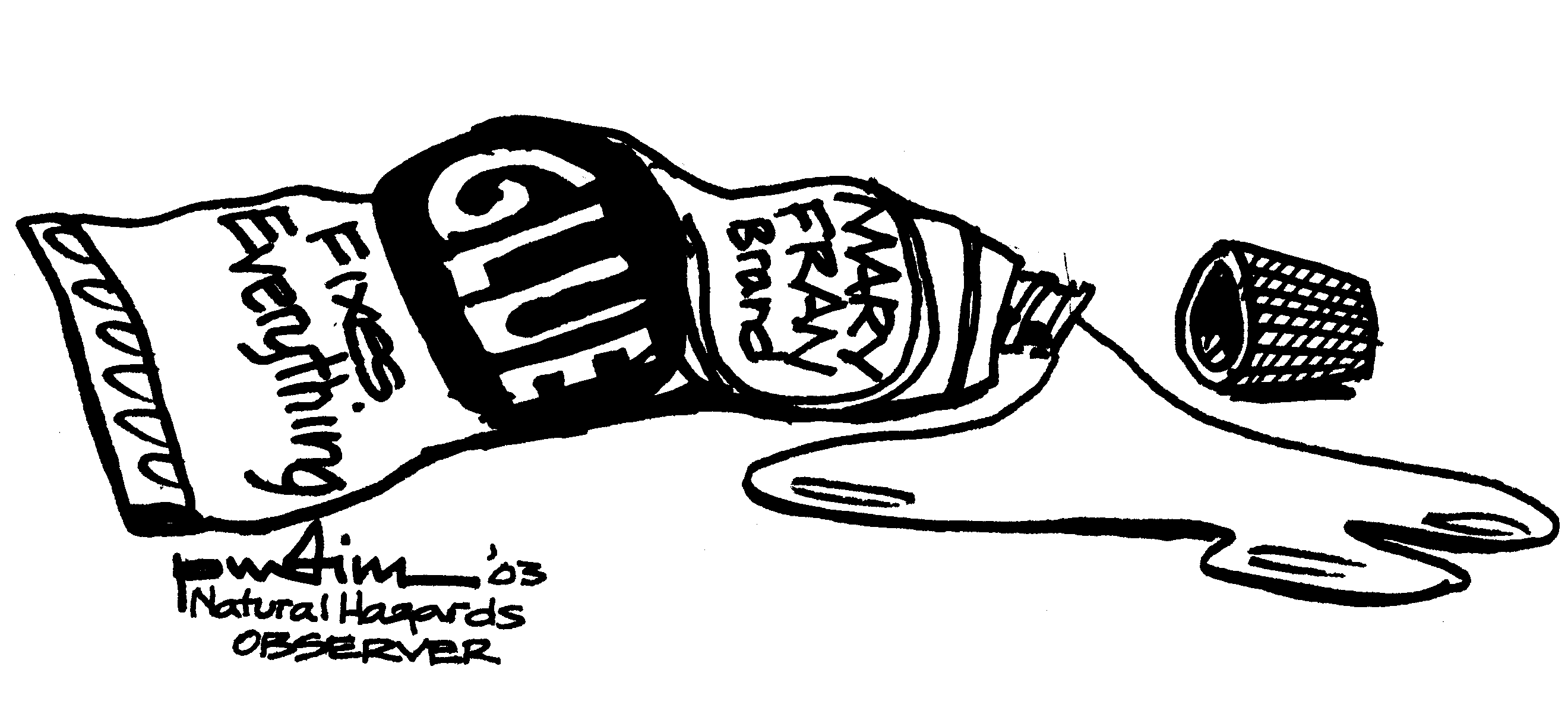And Yet Another Quick Response Report
from the Natural Hazards Center!Bimal Kanti Paul, Vicki Tinnon Brock, Shane Csiki, and Lori Emerson of the Kansas State University Department of Geography examine the adequacy of tornado warning systems in both rural and urban communities in a recent Quick Response (QR) research report, QR 165: Public Response to Tornado Warnings: A Comparative Study of the May 4, 2003, Tornados in Kansas, Missouri, and Tennessee. The authors conducted surveys in 18 communities impacted by the tornados in an effort to determine whether residents received sufficient warning and were able to seek shelter. QR 165 is available on-line at http://www.colorado.edu/hazards/qr/qr165/qr165.html. QR reports are the result of the Natural Hazards Center's Quick Response research program, which allows researchers to examine the effects of disasters immediately after they happen. QR 165, and many other reports, can be downloaded for free from the Natural Hazards Center web site: http://www.colorado.edu/hazards/qr. Reports can also be purchased for $5.00, plus $4.50 shipping, from the Publications Administrator, Natural Hazards Center, University of Colorado, 482 UCB, Boulder, CO 80309-0482; (303) 492-6819; fax: (303) 492-2151; e-mail: janet.kroeckel@colorado.edu.
Aficionados know that some of the great moments in sports were not game-winning home runs, 30-foot jump shots at the buzzer, or 60-yard hail-Mary passes; some were quieter moments, like that spring day in 1963 when Bob Cousy retired from the Boston Celtics. "If I had it to do all over again," Cousy said, "I wouldn't play anywhere else but Boston," and the crowd erupted in cheers that seemed to last forever. But then, as the famous guard fought back tears, an awkward silence settled over the old, smokey Boston Garden, until a lone voice cried out from the rafters, "We love ya, Cooz! . . ."

In November, Mary Fran Myers retired after over 15 years as the Natural Hazards Center's Project Manager and Co-director. As much as Cousy was the glue that held together the Celtic dynasty, Mary Fran is the glue that held together not just the Hazards Center, but also a broad community of hazards researchers, practitioners, and just plain dedicated people working to free the world from the pain and loss inflicted by disasters. During those years, Mary Fran dedicated her life to bringing together everyone from top-level federal bureaucrats to small-town emergency managers so that they could share their knowledge and fears regarding the perils that threaten our society. She was a mentor to government officials, college professors, and unseasoned students alike, gently (and sometimes not so gently) pointing them toward the fundamental questions that lie at the core of all-hazards management. Indeed, throughout her tenure, Mary Fran was the organizer and host of the world's most important annual meeting on hazards, the Natural Hazards Workshop; administrator of the nation's only all-hazards quick response research program for social scientists; and overseer of the center's vast publications and library services programs.
But besides the big picture, Mary Fran kept her eye on the small things (the cost of mailings, the condition of the library database) so that the Hazards Center could keep running. Indeed, there were lean times when the center survived only because Mary Fran had minded the books and squirreled away emergency funds.
What will we do without her?
Keep working, we suppose. And hope that the next Project Manager can somehow live up to the remarkable legacy and high standards established by her or his predecessor.
But no matter who takes the job, it just won't be the same.
We love ya, Mary Fran! . . .
Table of Contents for This Issue of the Natural Hazards Observer
Index of Past Issues of the Natural Hazards Observer
Natural Hazards Center's Main Page